Objectives of the program
Solar Tears is a research project with a humanitarian goal, its objectives are :
India may be the place where frugal engineering has become a recognized economic model [5-6] that can be applied to both basic needs such as health and more strategic needs, Aerospace. This implies a disruptive approach by comparision to the usual R&D principles [7]. Creating innovation at a local level is a response to globalization [5] [9]. The example of the Mitticool refrigerator operating without electricity is characteristic of frugal engineering, it operates on a principle of evaporation to keep foods cool (http://www.mitticool.in/). Created by an artisan potter, this system has been awarded many times, symbolizing a technological, economic, social and environmental success.
[1] N. Radjou, L’innovation Jugaad, 2013, Les éditions Diateno.
[2] The Frugal Innovator, Charles Leadbeater, 2014, Palgrave Macmillan publication.
[3] R.Tiwari, K. Kalogerakis, C. Herstatt, Frugal Innovation and Analogies: Some Propositions for Product Development in Emerging Economies, Technology and Innovation Management, Hamburg University of Technology, Working paper 84 (2014).
[4] R.Tiwari, K. Kalogerakis, C. Herstatt, Frugal Innovation and Analogies: Some Propositions for Product Development in Emerging Economies, Technology and Innovation Management, Hamburg University of Technology, Working paper 84 (2014).
[5] S.K. Jha, R.T. Krishnan, Local innovation: The key to globalization, Management Review 25 (2013), pp. 249-256.
[6] R.Tiwari & C. Herstatt, Frugal innovations for the ‘unserverd’ customer, Technology and Innovation Management, Hamburg University of Technology, Working paper 69 (2012).
[7] B.C. Rao, How disruptive is frugal ?, Technology in Society 35 (2013), pp 65-73.
[8] S. Rohmer, Modelling of immersive systems for collaborative design, 20th Int. Conf. of Engineering Design (ICED’15), Milan.
"Eco-cloud" is a workspace that generates and shares information on sustainability. It is made of a virtual and a physical workspace. The virtual workspace provides LCA software, and methodologies/tools/software created by CREIDD. The physical workspace is made of three units : « the autopsy unit » dedicated to the analysis of products in terms of structural and functional complexity (frugality) ; « the Environmental Impact Assessment cell unit » consisting of computers and software; and a teaching unit dedicated to Territorial & Industrial Ecology.
The unit is made of: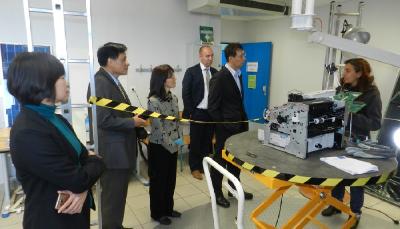
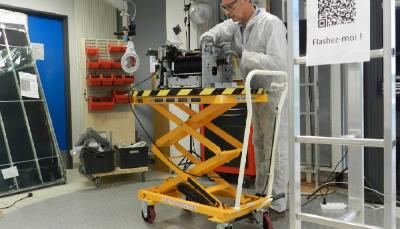
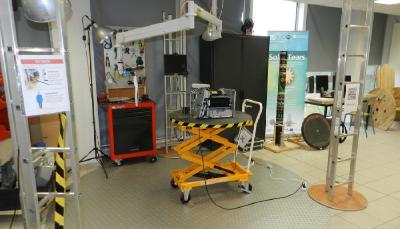
Espace de travail de la cellule d’autopsie, UTT © Serge ROHMER
A set of water purifiers technologies will be studied, they habe been chosen depending on their simplicity in order to be easily used by villages without specific scientific knowledge.
To know more : http://www.solvatten.se
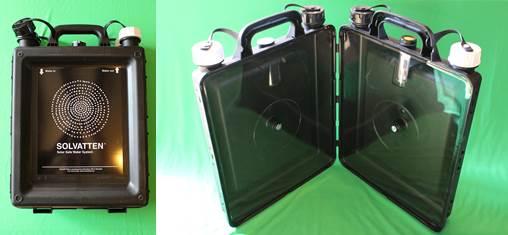
To know more Carocell : http://www.f-cubed.au
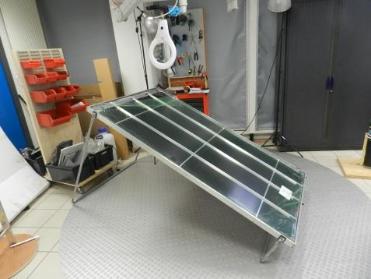
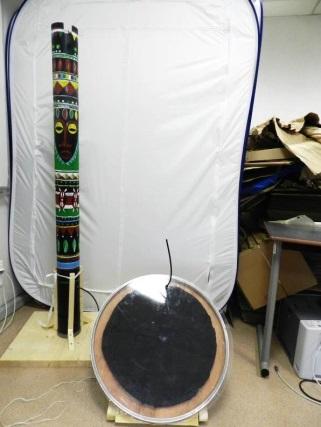
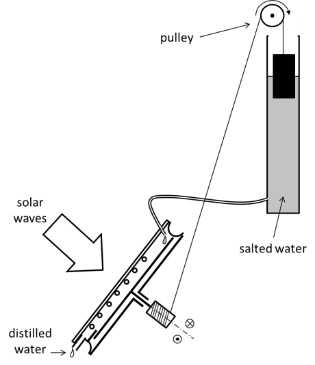
Other systems will be studied …
- Scientific objectives : comparision between current "eco-design" methodologies and "frugal engineering". Analysis of the most suitable business models in the context of frugal innovation,
- Pedagogical objective : the students are involved in the program, the academics will face to a real important societal issue,
- Humanitarian objective : cultural and social openness to help populations in difficult social situations,
- Valorisation : scientific and pedagogical communication (conferences, journals, videos , …).
Frugal engineering at the core of the project
Africa and India are pioneers, as for example the M-PESA service created by the Kenyan mobile operator Safaricom. It is a mobile phone payment system for people who do not have a bank account. Today, more than 15 million Kenyans send and receive money through this simple and efficient service.India may be the place where frugal engineering has become a recognized economic model [5-6] that can be applied to both basic needs such as health and more strategic needs, Aerospace. This implies a disruptive approach by comparision to the usual R&D principles [7]. Creating innovation at a local level is a response to globalization [5] [9]. The example of the Mitticool refrigerator operating without electricity is characteristic of frugal engineering, it operates on a principle of evaporation to keep foods cool (http://www.mitticool.in/). Created by an artisan potter, this system has been awarded many times, symbolizing a technological, economic, social and environmental success.
[1] N. Radjou, L’innovation Jugaad, 2013, Les éditions Diateno.
[2] The Frugal Innovator, Charles Leadbeater, 2014, Palgrave Macmillan publication.
[3] R.Tiwari, K. Kalogerakis, C. Herstatt, Frugal Innovation and Analogies: Some Propositions for Product Development in Emerging Economies, Technology and Innovation Management, Hamburg University of Technology, Working paper 84 (2014).
[4] R.Tiwari, K. Kalogerakis, C. Herstatt, Frugal Innovation and Analogies: Some Propositions for Product Development in Emerging Economies, Technology and Innovation Management, Hamburg University of Technology, Working paper 84 (2014).
[5] S.K. Jha, R.T. Krishnan, Local innovation: The key to globalization, Management Review 25 (2013), pp. 249-256.
[6] R.Tiwari & C. Herstatt, Frugal innovations for the ‘unserverd’ customer, Technology and Innovation Management, Hamburg University of Technology, Working paper 69 (2012).
[7] B.C. Rao, How disruptive is frugal ?, Technology in Society 35 (2013), pp 65-73.
[8] S. Rohmer, Modelling of immersive systems for collaborative design, 20th Int. Conf. of Engineering Design (ICED’15), Milan.
Means
The technologies used for Solar Tears consist of both a Technology Platform entitled "Eco-Cloud" and a set of water purification systems that will be studied through this platform."Eco-cloud" is a workspace that generates and shares information on sustainability. It is made of a virtual and a physical workspace. The virtual workspace provides LCA software, and methodologies/tools/software created by CREIDD. The physical workspace is made of three units : « the autopsy unit » dedicated to the analysis of products in terms of structural and functional complexity (frugality) ; « the Environmental Impact Assessment cell unit » consisting of computers and software; and a teaching unit dedicated to Territorial & Industrial Ecology.
The autopsy unit
The unit consists of a set of materials to evaluate the performance and the complexity of a product according to indicators of frugality. The cell can also be used to create a nomenclature that would be required for a LCA (Life Cycle Analysis).The unit is made of:
- a lifting table supporting up to 150 kg,
- disassembly tools: standard or specific (endoscopy, IR thermometer, ..),
- an audio/video recording system : a 360° Gyroptic camera to memorize the disassembly process; the system can broadcast the autopsy live,
- an articulated arm to support the light spot and the recording system: allows to focus the recording at the exact location of the autopsy.



Espace de travail de la cellule d’autopsie, UTT © Serge ROHMER
A set of water purifiers technologies will be studied, they habe been chosen depending on their simplicity in order to be easily used by villages without specific scientific knowledge.
Solvatten
SOLVATTEN is a solar water purifier made of 2 containers of 5 L each. The back cover is black and the front cover is transparent. The water is heated by solar waves until about 75°C, and an indicator informs the user when the purification is done after 2 to 6 hours.To know more : http://www.solvatten.se

Carocell
The Carocell system is produced by F-CUBED, it is a water purifier and distiller.To know more Carocell : http://www.f-cubed.au

Sowatee (SOlar WATEr distillEr)
The solar water distiller consists in a wheel recycled from a bike which creates a circular box.

Other systems will be studied …
Date of update 08 janvier 2020

